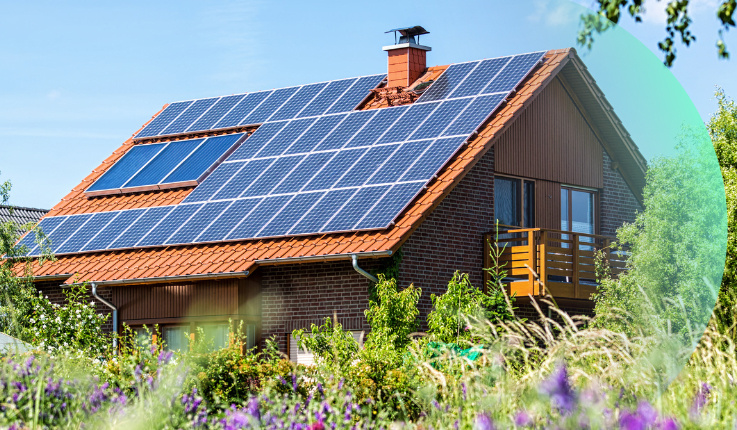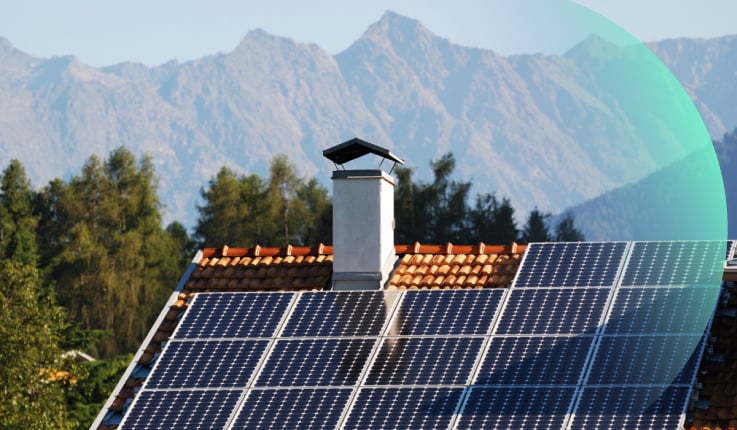5 technological breakthroughs revolutionizing the energy sector in 2024
The energy sector is undergoing an important and remarkable change thanks to technological advances, which are helping us to build a more sustainable and efficient model for everyone.
From Nordy, we want to tell you the 5 most important technological advances in the energy sector of the past 2024.
1. Artificial intelligence in network management
In an increasingly technological world, artificial intelligence (AI) stands out as a key tool to boost efficiency in the energy sector. In 2024, its application in power grid management revolutionized the way energy is distributed and consumed.
Key applications
- Demand forecasting: AI analyzes historical patterns to predict future energy needs, helping to avoid blackouts.
- Preventive maintenance: Identifies potential network failures before they occur, reducing downtime.
- Consumption optimization: Enables more efficient use of energy resources.
According to El Periódico de la energía 67% of energy companies plan to significantly increase their IA budget in the next two years.
Currently, according to Minsait, 39% of these companies already allocate sufficient resources to integrate AI into their operations.
Intelligent self-consumption systems
Another prominent trend in the energy sector is the integration of smart self-consumption systems. These systems combine technologies such as solar panels, batteries and IoT devices (physical objects that are connected to the Internet) to manage energy consumption autonomously.
Key features
- Automation: Systems adjust consumption based on energy tariffs and weather conditions.
- Interconnection: Intelligent devices communicate with each other to optimize energy use.
Impact on homes and businesses
These systems are enabling consumers to significantly reduce their electricity bills and minimize their carbon footprint, contributing to a more sustainable society.
In 2024, self-consumption of energy experienced significant growth in Spain.
According to data from APPA Renovables:
"Spain has more than 480,000 self-consumption installations, 410,000 in homes and 70,000 in the industrial sector, covering 3% of the national electricity demand."
3. Smart Grids:smart gridsfor efficient management
Smart Grids are transforming energy management by incorporating digital technology that optimizes electricity flow. These grids allow real-time monitoring of consumption and generation, facilitating the integration of renewable energies and adapting to users' needs.
Outstanding innovations
- Smart meters: They allow real-time monitoring of consumption, optimizing energy use.
- Integration of renewable energies: They help balance the supply and demand of renewable energy, such as solar and wind.
- Decentralized control: Thanks to AI and IoT, they adjust supply according to needs, improving reliability and reducing overloads.
Benefits
- Increased efficiency: Reduced losses and better use of energy.
- Reliability: Early identification of problems and reduction of outages.
- Sustainability: Facilitate the adoption of clean energy, driving the energy transition.
In recent years, the main energy companies in Spain have significantly increased their investments in smart grids, known as Smart Grids, with the aim of modernizing infrastructure and facilitating the energy transition.
4. Electric mobility and sustainable transportation networks
Electric mobility is considered an essential pillar of the energy transition. In 2024, we have seen a renewed focus on creating more sustainable and interconnected transportation networks.
Innovations highlighted
- Electric intermodality: Integration of electric vehicles with other sustainable transportation systems to create a more efficient mobility network.
- Advanced charging technologies: The evolution of smart charging stations facilitates a more agile and personalized user experience.
Benefits
- Significantreduction of emissions in cities.
- Increased adoption of renewable energy in the transportation sector.
According to data from the Spanish Association of Automobile and Truck Manufacturers (ANFAC), in September 2024, sales of electrified vehicles in Spain reached 10,952 units, representing 12.3% of the total market.
5. Expansion of recharging points for electric vehicles
The growth of electric mobility has driven a rapid expansion of charging points for electric vehicles, a key aspect in encouraging their adoption.
The number of charging stations has doubled in the last two years, facilitating consumer adoption of electric vehicles. This development not only facilitates the transition to electric vehicles, but also helps to reduce dependence on fossil fuels, promoting the wider use of renewable energy sources. In addition, this trend contributes significantly to the reduction of CO2 emissions, supporting global efforts to combat climate change.
According to Europa Press:
"Spain exceeds 37,000 public charging points for electric vehicles in the third quarter of 2024, a significant increase over the previous year."
As you can see, technological advances transformed the energy sector in 2024. The combination of these innovations is paving the way for a more sustainable and efficient future.
If you want to stay informed about the latest technological developments in the energy sector, we invite you to visit our blog and discover more about this interesting topic.



























